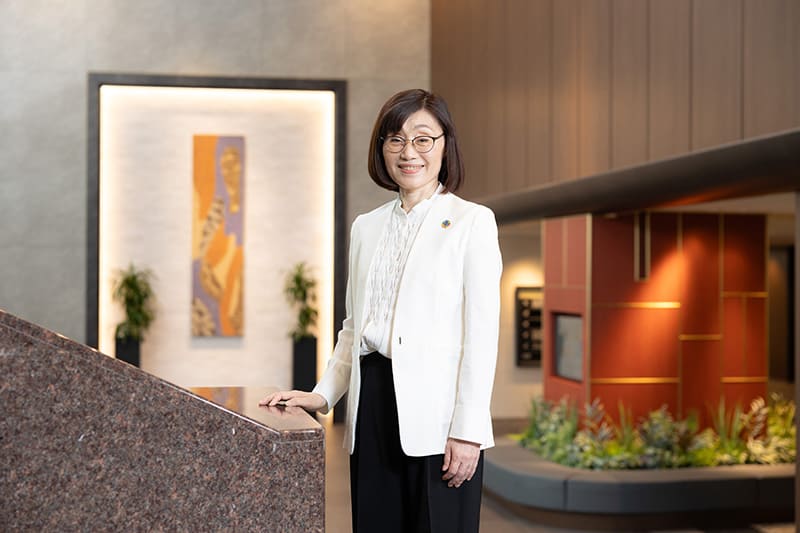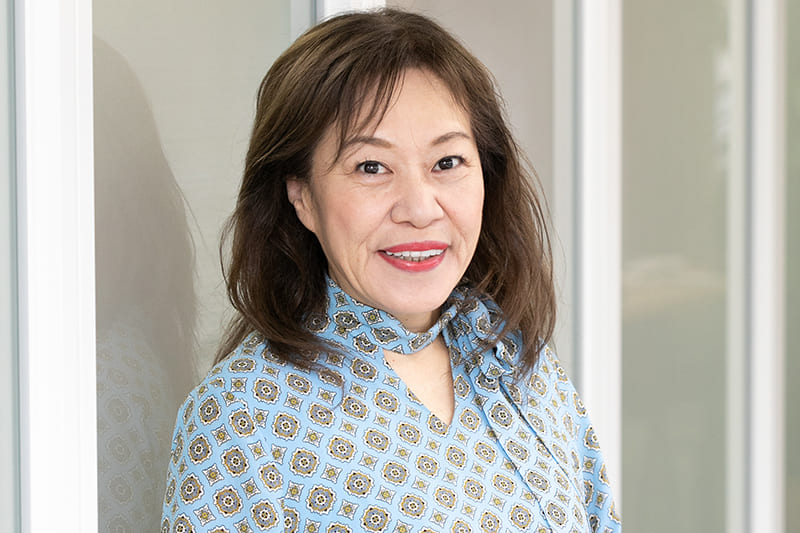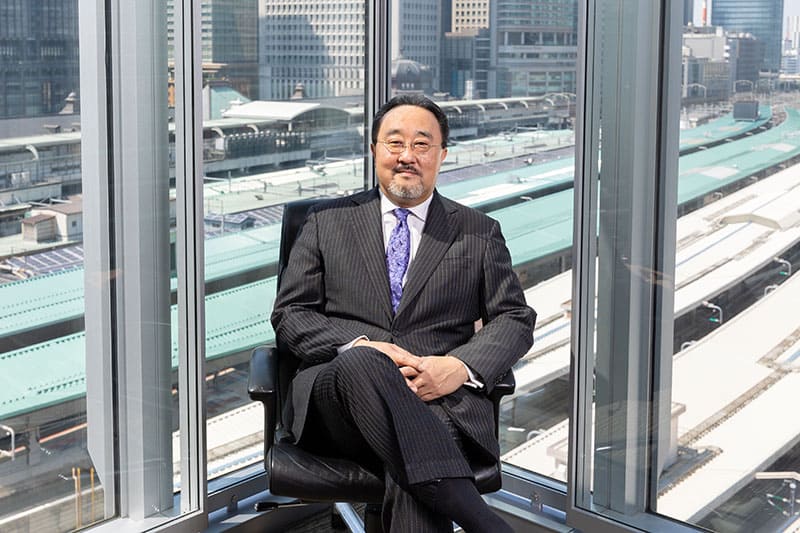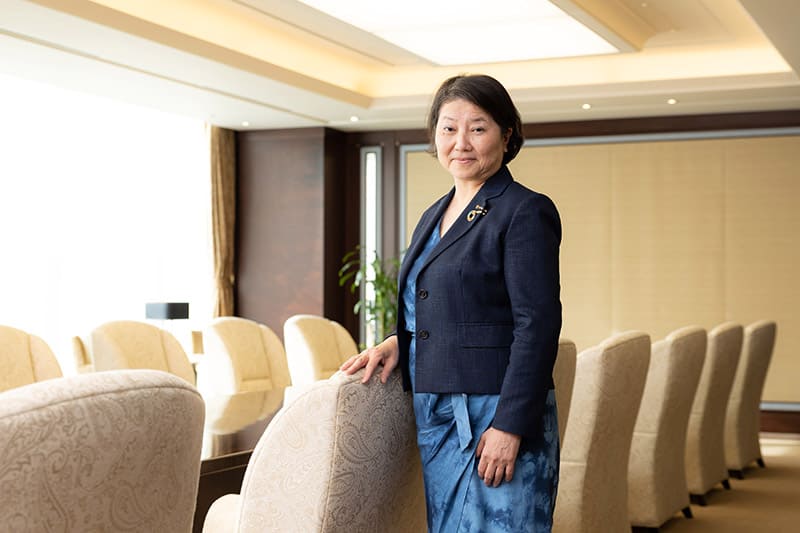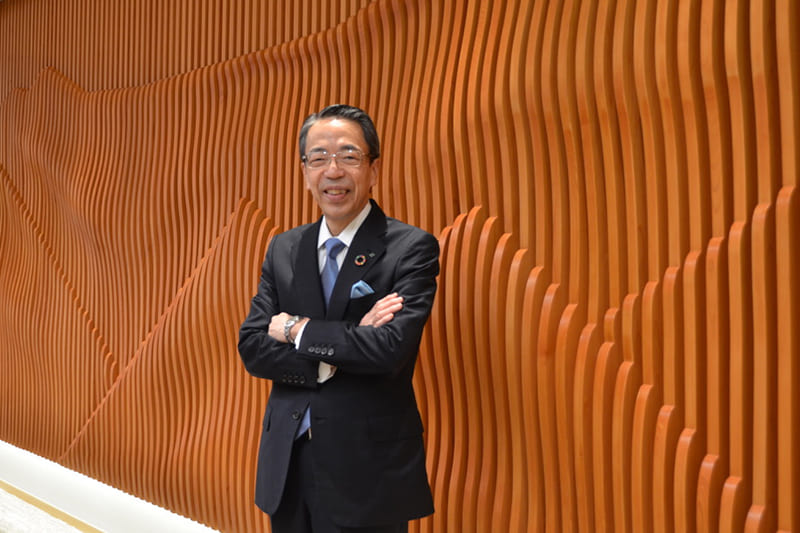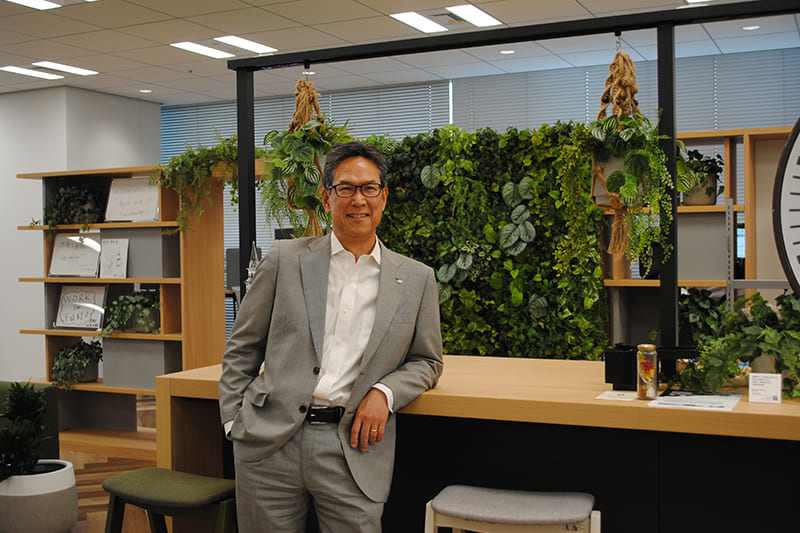January 19, 2024
Sumitomo Mitsui: The power of trust is a curious thing
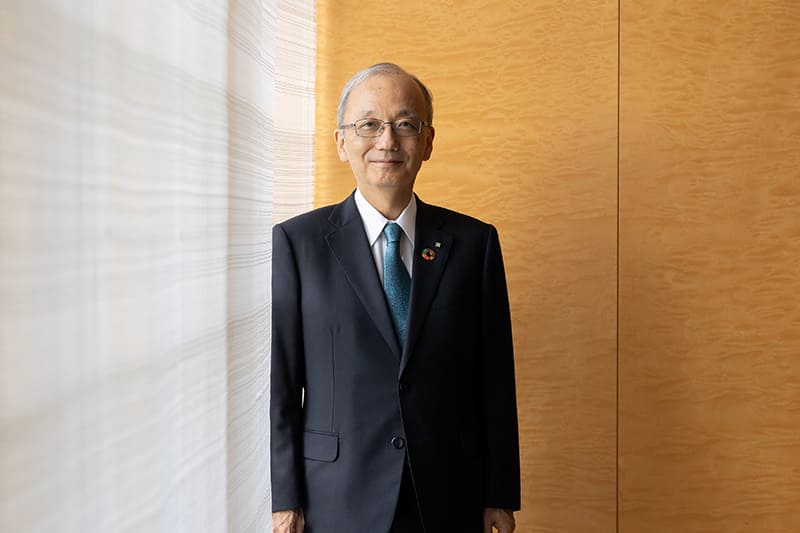
The Japanese financial industry got caught off guard a few years ago when Sumitomo Mitsui Trust Holdings Inc. made a radical turn in its business policy — ending cross-shareholding, a common practice among Japanese banks.
The group announced in May 2021 that it would eventually sell off all of its shares in its corporate partners. Such holdings were then worth about ¥1.4 trillion ($12.8 billion).
“It was our pledge not to hold shares for policy purposes as a stable shareholder like in the past,” President Toru Takakura said in a recent interview, part of a monthly series by Naonori Kimura, a partner for the consulting firm Industrial Growth Platform Inc. (IGPI). “Cross-shareholding has a history of building trust with our customer companies, but we decided not to carry over the business practice,” he said. Ending it would require time, however, because consensus with the other firms was needed, he added. The announcement of the new policy came the month after his appointment as president.
The decision was one of a number of symbolic actions taken in the changing global business environment, where financial institutions and companies are required to take a bigger role in social and environmental issues to stay sustainable. It shows that the trust banks, which conduct a wider range of business and have longer-term commitments with customers than ordinary Japanese commercial banks, are shifting their core business from conventional interest income to a combination of financing, asset management and advisory services that require high expertise.
The drastic policy change also means the 100-year-old banking group has taken a step to stimulate the dynamism of the Japanese stock market. “Such reduction in cross-shareholdings will not only improve the capital efficiency of our finance but also contribute to a better circulation in Japan’s capital market,” the May 2021 press release said.
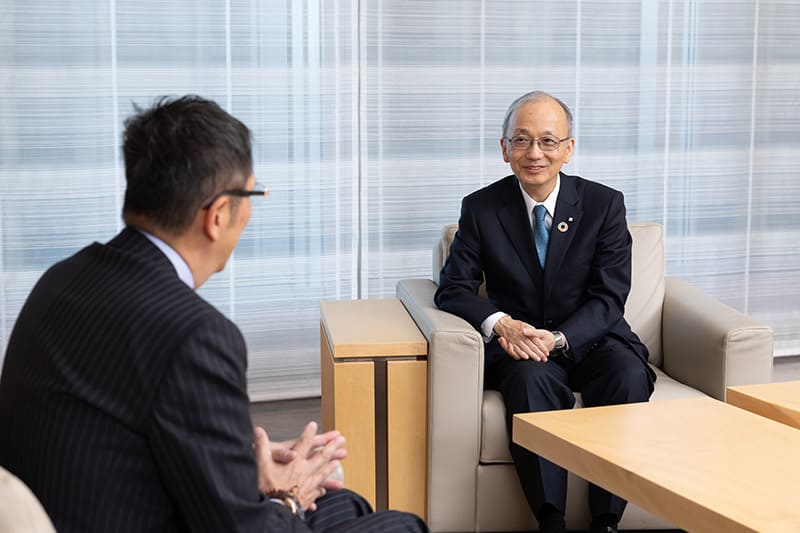
Historically, Japanese banks and their customer companies have held shares in each other to bolster their business ties. The strategy has helped to cement relations and at the same time protect against hostile takeovers. But that insulation from outside parties has also been criticized by financial experts and overseas investors as limiting shareholder-led governance, and mutual shareholding has gradually declined in the past decades.
The release said the group wanted to contribute to a positive circulation of funds, assets and capital and to the improvement of customers’ corporate values. The group would utilize the capital generated by selling its mutually held shares, partly by directing ¥500 billion through the business year ending in March 2031 into impact equity investments to help address social issues.
In 2022, Sumitomo Mitsui Trust also made a strategic partnership with the New York-based alternative asset manager Apollo Global Management Inc., aiming to help individual investors and pension funds invest in private assets and for such asset movements to accelerate the trend of shifting money from savings into investments.
These decisions were based on the group’s corporate purpose, set in 2020, “Trust for a flourishing future,” making it one of the country’s first financial groups to introduce the concept of a corporate purpose into business management.
In addition to the drastic policy shift, Sumitomo Mitsui Trust pledged three numerical targets in its midterm management plan for the three years to March 2026. The first was to lift its return on equity to 10% or higher. The second was to generate a net profit of ¥300 billion or more. The third aimed for ¥800 trillion in “assets under fiduciary” — its term for the balance of assets under management plus the balance of assets under administration plus proprietary investments — so it could improve its price-to-book ratio (PBR) to above 1.0. A ratio under 1.0 means a share price is below the value it would have if the company were liquidated. The low ratios of many Japanese businesses is a long-term problem.
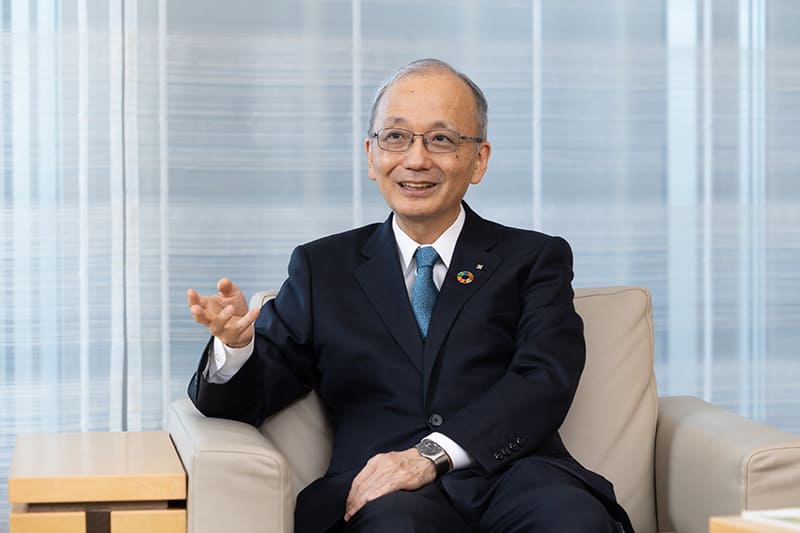
In order to break away from the past, Sumitomo Mitsui Trust started something different. One example of its new types of business is called “positive impact finance,” in which the group evaluates the positive and negative impacts of a company’s business on the environment, society and the economy and extends loans in such a way that the company maximizes its positive impacts and limits negative ones. The group’s technology-based finance team, which was launched in 2021, used its expertise in hydrogen, batteries, chemicals and other crucial areas in this process. Then it monitors the company’s business activities by checking disclosed data. In this business, Sumitomo Mitsui Trust collects not only the interest on the loans but also service fees.
Last April, the group established the joint venture MFA Inc., which carries out ownership engagement activities on behalf of institutional investors and shareholding financial institutions. It is owned 36% by Sumitomo Mitsui Trust Bank, 25% by the consulting firm Corporate Directions Inc., 20% by IGPI and 15% by Misaki Federation Inc.
One reason for the banking group to back the new business is the increasing number of passive investments in the country, where stakeholder engagement is becoming just a formality and few actively support boosting corporate values with a long-term perspective.
“I believe real engagement activity is necessary in this country, and this thought is the base of our joining the joint venture,” Takakura said. “We’ll support companies to boost corporate values. If there is a mediator to help their engagement, it will probably be beneficial for them.”
Over the century since the Trust Act was enacted in 1922 to rid Japan of hundreds of bogus funds, after which the Mitsui Trust and Sumitomo Trust were established in 1924 and 1925, trust banks have reinforced their function to pass on individual and corporate wealth to the next generation. “Our mission is to realize what we are entrusted to by thinking about the future with our customers and beneficiaries. We want to start the next century by sharing this belief with our employees,” Takakura said.
Naonori Kimura
Industrial Growth Platform Inc. (IGPI) Partner
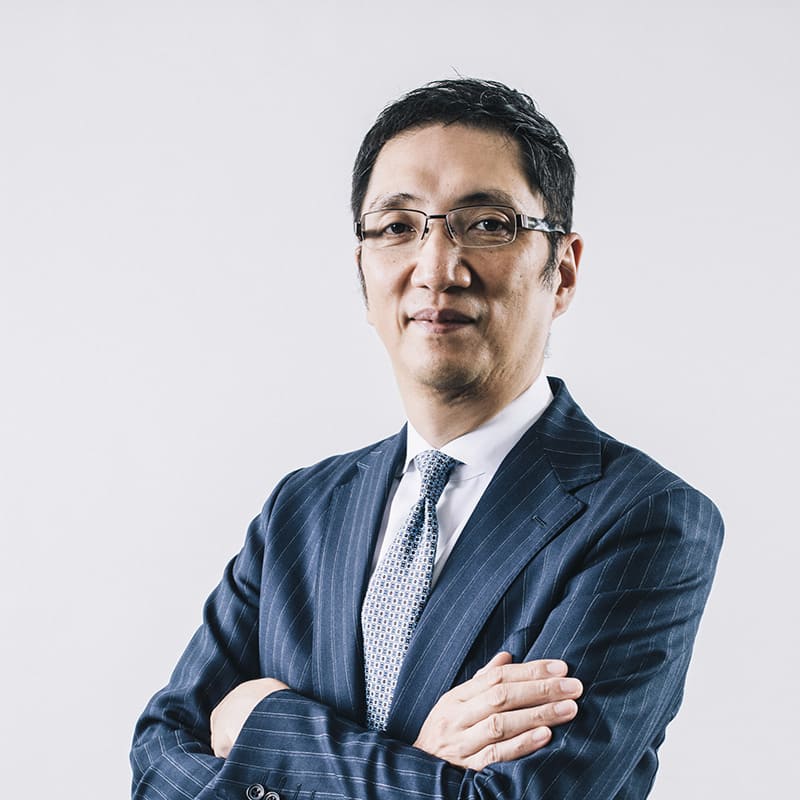
Sustainable management supports not only engagement activities from a long-term perspective but also a flexible corporate structure.
Sumitomo Mitsui Trust Holdings Inc., whose earliest predecessor was founded 100 years ago, has set “Paving the Way for the Next 100 Years with the Power of Trust” as the core policy of its new medium-term management plan and is carrying out activities for the sake of the future. The company has broken new ground: taking a “backcasting” approach by outlining where it wants to be in 2030, pledging to sell all its cross-shareholdings and setting numerical targets including a 10% return on equity.
Of particular note is that it has set up a sustainability committee geared toward the creation of social and economic value. It also has pledged to contribute to carbon neutrality and strong supply chains. As for human well-being, it actively invests in human capital, recruiting and training diverse people with high expertise. Meanwhile, it is taking progressive steps matched by few other banks, such as launching the joint venture MFA Inc., which carries out long-term investor engagement activities.
The source of the company’s sustainable management is the power of engagement, which builds long-term trust with its customers in the trust banking business, and a corporate structure that has never been rigid, making it possible to evolve and transform ahead of changes in the business environment.
sharing this belief with our employees,” Takakura said.

